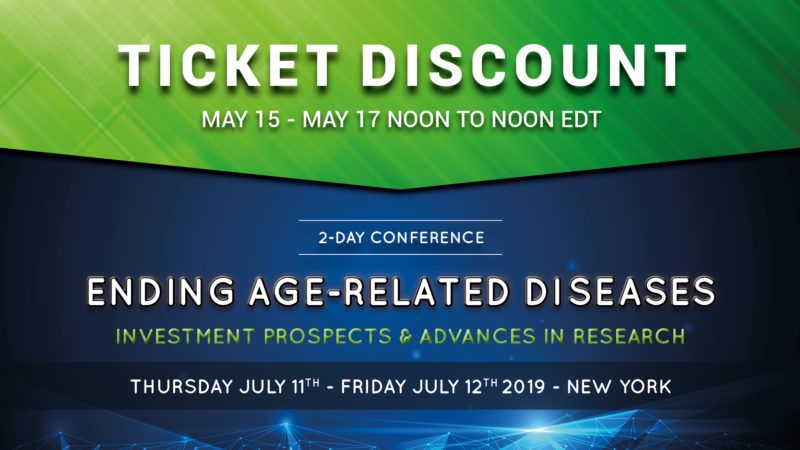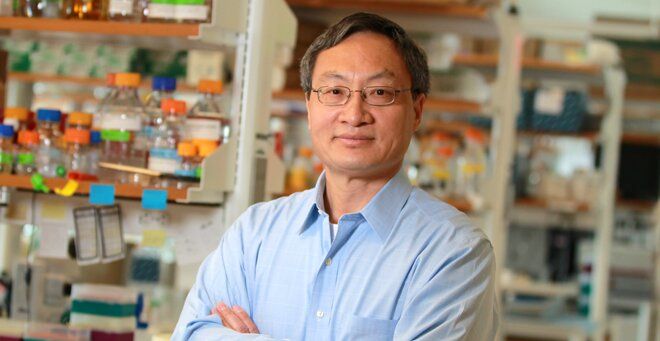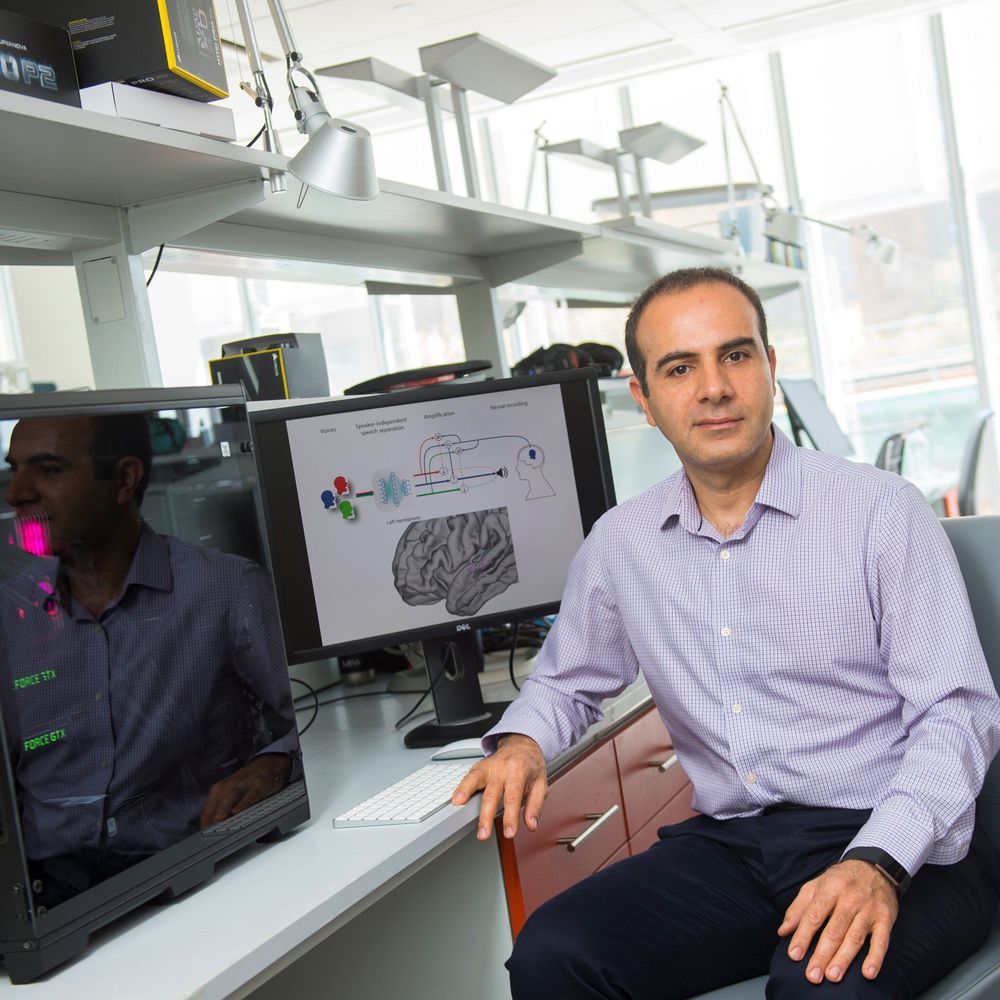Page 7827
May 15, 2019
Scientists Say They’ve Created a Smartphone App That Can Hear Ear Infections
Posted by Genevieve Klien in categories: biotech/medical, health, mobile phones
Wondering if your kid is dealing with an ear infection? Soon, according to researchers at the University of Washington, there’ll be an app for that. They claim to have created a simple test that uses a smartphone and folded up paper to detect one of the telltale signs of infection—fluid in the ears—with about the same or greater accuracy as a doctor.
Ear infections are one of the first health problems people tend to experience. By the age of three, most everyone has had at least one ear infection. These infections often cause fluid build-up in the ear, as can another condition called otitis media with effusion (OME). But though most infections or cases of OME go away on their own, too much or chronic fluid can cause pain or even severe complications like hearing loss.
May 15, 2019
Come to Our Conference at a Special Price!
Posted by Steve Hill in categories: biotech/medical, life extension
We’re offering a few discounted tickets to our conference, Ending Age-Related Diseases 2019, in order to celebrate the 174th birthday of Élie Metchnikoff, the father of gerontology. We’re selling these tickets at the previous early bird price of $350 instead of the current $400!
This special, lower-price offer is valid from May 15, Noon EDT to May 17, Noon EDT, so this is the ideal time to guarantee your place at this exciting event. Prices will also be rising to $500 from June 10th onwards as we draw closer to the conference.
You can get your discounted ticket by visiting our Eventbrite page and using the discount code Metchnikoff.
Continue reading “Come to Our Conference at a Special Price!” »
May 15, 2019
The Thesis on Consciousness and Experiential Realism: Digital Philosophy Perspective
Posted by Alex Vikoulov in categories: alien life, computing, information science, quantum physics
A radically new view articulated now by a number of digital philosophers is that consciousness, quantum computational and non-local in nature, is resolutely computational, and yet, has some “non-computable” properties. Consider this: English language has 26 letters and about 1 million words, so how many books could be possibly written in English? If you are to build a hypothetical computer containing all mass and energy of our Universe and ask it this question, the ultimate computer wouldn’t be able to compute the exact number of all possible combinations of words into meaningful story-lines in billions of years! Another example of non-computability of combinatorics: if you are to be born and live your own life again and again in our Quantum Multiverse, you could live googolplex (10100) lives, but they all would be somewhat different — some of them drastically different from the life you’re living right now, some only slightly — never quite the same, and timeline-indeterminate.
Another kind of non-computability is akin to fuzzy logic but based on pattern recognition. Deeper understanding refers to a situation when a conscious agent gets to perceive numerous patterns in complex environments and analyze that complexity from the multitude of perspectives. That is beautifully encapsulated by Isaiah Berlin’s quote: “To understand is to perceive patterns.” The ability to recognize patterns in chaos is not straightforwardly algorithmic but rather meta-algorithmic and yet, I’d argue, deeply computational. The types of non-computability that I just described may somehow relate to the non-computable element of quantum consciousness to which Penrose refers in his work.
May 15, 2019
AUDI’s new electric car will have autonomous vehicle capability and a roof that holds real plants
Posted by Quinn Sena in categories: robotics/AI, transportation
Apart from the AI tech implemented to take most of the effort out of driving in general, the AI: ME autonomous vehicle is completely electric and holds plants.
May 15, 2019
Anatomy of a living, tree-based spaceship
Posted by Quinn Sena in category: space travel
I’ve always liked living spaceships, but it seems to me that the animal kingdom would make far inferior spaceships to the plant kingdom. With that in mind, what does this tree-ship have to be made from to:
May 15, 2019
Ask Anything: Could You Build A Spaceship Out Of Wood?
Posted by Quinn Sena in category: space travel
Illustrations by Jason Schneider
“In terms of strength, wood is pretty good,” says Mike Gruntman, professor of astronautics at the University of Southern California. Early airplanes were built with wood, all the way into the early 1930s. (There were also wooden submarines.) Gruntman thinks it may be possible to build a wooden spacecraft that could survive the stress of a rocket launch.
Once your timber ship made it into space, however, you’d have a lot of problems. For starters, the organic matter would contain a fair amount of water. In a vacuum, that water would leak out and evaporate, which could affect the structure—especially in places where screws and brackets were attached. Even if this process unfolded over many weeks or months, the integrity of the spacecraft might be compromised.
Continue reading “Ask Anything: Could You Build A Spaceship Out Of Wood?” »
May 15, 2019
A Massive ‘Blob’ of Rock Stretching Under Asia Might Be Triggering Hundreds of Earthquakes
Posted by Quinn Sena in category: futurism
Ummmm… o„o.
A massive, underground “blob” of dripping continental crust might be triggering hundreds of mysterious earthquakes in the Hindu Kush mountains.
May 15, 2019
Potential drug targets for ALS and FTD identified in two studies
Posted by Quinn Sena in categories: biotech/medical, genetics, neuroscience
A pair of collaborative studies led by Fen-Biao Gao, Ph.D., have identified two potential drug targets for the diseases amyotrophic lateral sclerosis (ALS) and frontotemporal dementia (FTD). The studies, which appear in Nature Neuroscience and PNAS, provide a new layer of detail about how hexanucleotide repeat expansions in the C9ORF72 gene, the most common genetic mutation responsible for both ALS and FTD, causes neuron cell death. The Nature Neuroscience study also describes a new mouse model that more closely mimics the gradual build-up of toxins in patients with the diseases.
“Understanding how these mutations lead to motor neuron damage is important to the development of new treatment approaches,” said Dr. Gao, the Governor Paul Cellucci Chair in Neuroscience Research and professor of neurology. “We know that this mutation can cause these diseases. These studies show that both mitochondrial function and DNA repair pathways are disrupted when the mutated gene is present in cells. That makes them potentially druggable targets.”
In ALS, a progressive, neurodegenerative disorder affecting the motor neurons in the central nervous system, the C9ORF72 gene accounts for 40 percent of inherited forms of the disease and 6 percent of sporadic cases. As motor neurons die, the brain’s ability to send signals to the body’s muscles is compromised. This leads to loss of voluntary muscle movement, paralysis and eventually death from respiratory failure.
Continue reading “Potential drug targets for ALS and FTD identified in two studies” »
May 15, 2019
Experimental brain-controlled hearing aid decodes, identifies who you want to hear
Posted by Quinn Sena in categories: biotech/medical, robotics/AI
Our brains have a remarkable knack for picking out individual voices in a noisy environment, like a crowded coffee shop or a busy city street. This is something that even the most advanced hearing aids struggle to do. But now Columbia engineers are announcing an experimental technology that mimics the brain’s natural aptitude for detecting and amplifying any one voice from many. Powered by artificial intelligence, this brain-controlled hearing aid acts as an automatic filter, monitoring wearers’ brain waves and boosting the voice they want to focus on.
Though still in early stages of development, the technology is a significant step toward better hearing aids that would enable wearers to converse with the people around them seamlessly and efficiently. This achievement is described today in Science Advances.
“The brain area that processes sound is extraordinarily sensitive and powerful; it can amplify one voice over others, seemingly effortlessly, while today’s hearings aids still pale in comparison,” said Nima Mesgarani, Ph.D., a principal investigator at Columbia’s Mortimer B. Zuckerman Mind Brain Behavior Institute and the paper’s senior author. “By creating a device that harnesses the power of the brain itself, we hope our work will lead to technological improvements that enable the hundreds of millions of hearing-impaired people worldwide to communicate just as easily as their friends and family do.”



















